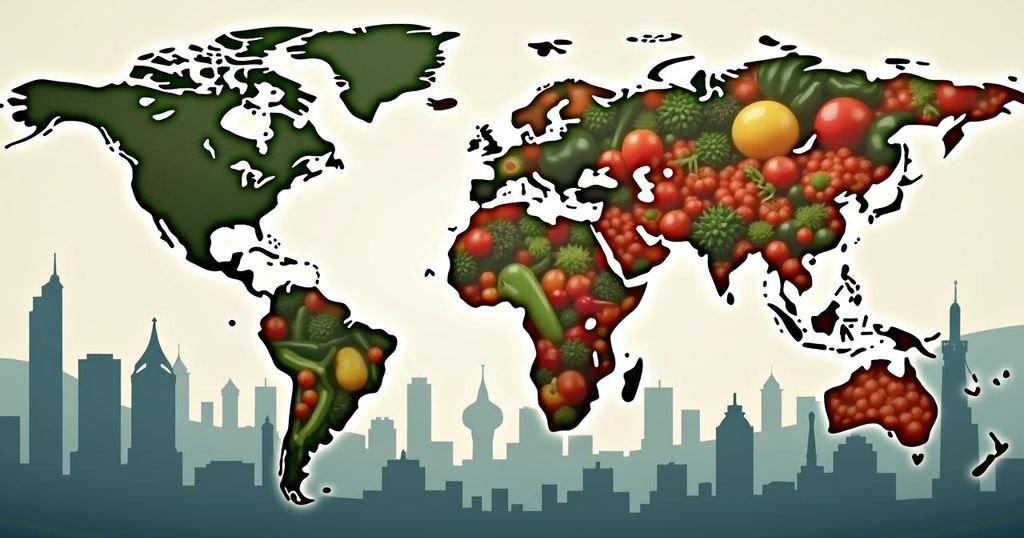Global Food Poisoning Incidents: A Call for Enhanced Safety Measures

Recent food poisoning incidents have been reported globally across multiple regions, including Malaysia, South Africa, Hong Kong, Taiwan, and India. These troubling cases involve a range of conditions, from mass illnesses affecting students to tragic fatalities. Investigations are ongoing in various locations to ascertain causes and prevent future occurrences.
In recent reports highlighting incidents of food poisoning, various regions across the globe have experienced alarming outbreaks affecting numerous individuals. In Malaysia, a suspected food poisoning case rendered 86 students ill after dining at their school cafeteria in Ipoh. Symptoms such as stomach pain, diarrhea, and vomiting emerged following their meal, with investigations pointing toward contaminated curry as the probable cause. One student required hospitalization, while results from samples collected by health authorities are pending assessment. In South Africa, a serious allegation of poisoning has surfaced involving Mlungisi Makhanya, the leader of Eswatini’s political opposition party, Pudemo. Following an alleged poisoning incident at his residence in Pretoria, where Makhanya was purportedly fed poisoned food, he remains in critical but stable condition. The political implications of this incident are significant, as officials suggest state involvement, although such assertions have been denied by the Eswatini government. The case is now being investigated by South African authorities for attempted murder. In Hong Kong, an outbreak affecting 51 people, including students and staff members at a Tai Po school, was reported. Symptoms occurred after consuming beef lasagna, leading to the launch of a health investigation. Government teams are focused on food safety education in response to this incident, underscoring the importance of hygiene in food preparation. In Taiwan, a tragic food poisoning incident has resulted in the deaths of three individuals and left nine others hospitalized. Investigations revealed traces of the pesticide terbufos in millet dumplings consumed at a family gathering. This unfortunate event prompted health officials to condemn the practice of using toxic substances in food preparation, emphasizing the critical role of agricultural safety. The authorities continue to probe the source of contamination in this case. Lastly, in India, a British YouTuber, Sam Pepper, was hospitalized after consuming a traditional drink, bhang lassi, which he linked to inadequate food preparation practices. In a separate incident in Uttar Pradesh, a 10-year-old girl died after her family experienced severe food poisoning symptoms following a meal of dal. These incidents serve as distressing reminders of the ongoing issues surrounding food safety globally and the dire consequences of negligence in food handling practices.
Food poisoning remains a critical public health issue that affects populations worldwide. Incidents can stem from various causes, including improper food handling, contaminated ingredients, and inadequate hygiene practices. Outbreaks may lead not only to severe health consequences for individuals but also carry broader implications for public health and safety regulations in food preparation and distribution. The cases discussed reflect the need for constant vigilance regarding food safety practices to mitigate such risks.
The recent occurrences of food poisoning across Malaysia, South Africa, Hong Kong, Taiwan, and India highlight the urgent necessity for robust food safety measures and continuous monitoring in food preparation environments. With multiple incidents resulting in severe health consequences, including fatalities, it is imperative for health authorities to investigate thoroughly and enforce regulations that promote safe food handling and prevent future outbreaks.
Original Source: www.foodpoisoningnews.com








